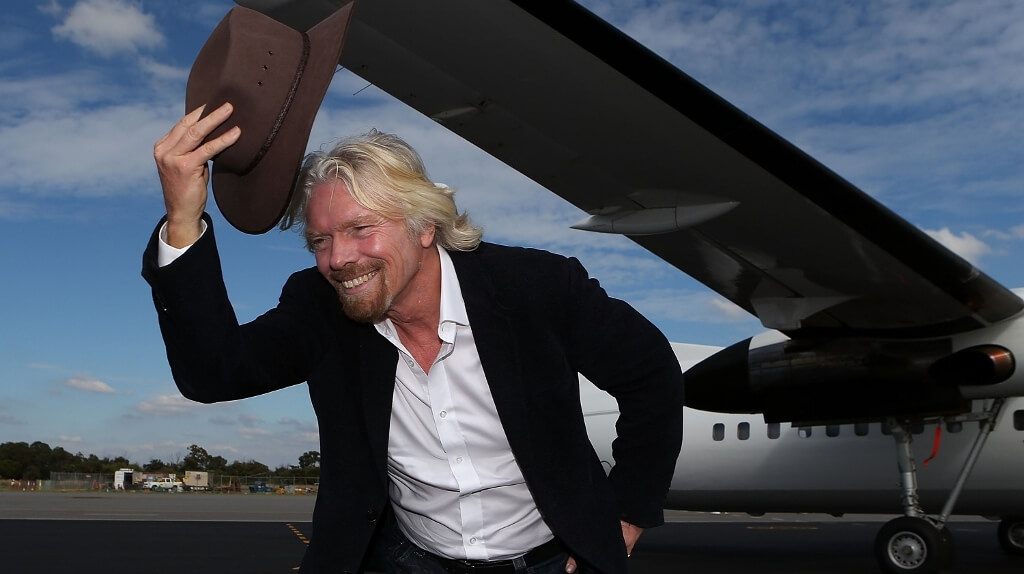
Around three out of four dyslexics say they hide their dyslexia from their employers. Many feel they must try to fit in, when actually we should be allowing our amazing Dyslexic Strengths to stand out. Because at work, as at school, people Made By Dyslexia are faced with standardised tests that don’t suit their non-standard, divergent thinking and their strengths are not always fully understood or capitalised upon, either.
Despite the amount of Dyslexic Thinkers reluctant to share their differences at work, four in five successful dyslexics attribute Dyslexic Thinking to their success. From Sir Richard Branson to the founder of IKEA, Ingvar Kamprad, from Jo Malone to Steve Jobs, each one possessed a unique ability to see the world differently. To ask ‘what if?’ and ‘why not?’. To turn their passion into a successful business that redefined their sector.
Dyslexic Thinking skills haven’t just shaped our past. They are ‘mission critical’ to our future, too. In 2018, we asked EY to help us research the overlap between Dyslexic Thinking skills and the skills of the future, as outlined by the World Economic Forum (WEF).
They produced two ground-breaking Value of Dyslexia reports, one in 2018 and 2019, which found that Dyslexic Thinking skills were an exact match for the WEF skills of the future. And the skills that were in decline (and would be automated or taken over by machines) were the very skills that dyslexics find challenging.
Our 2021 ‘The Dyslexic Dynamic’ report with ManpowerGroup highlighted that Dyslexic Thinking skills are even more vital for the post-COVID recovery. The pandemic has sped up the implementation of AI and automation, predicting that by 2025, 50 per cent of jobs will be done by machines, and the remaining 50 per cent of jobs done by the ‘human workforce’ will require the exact skills that dyslexics have. It was official – organisations need dyslexic thinkers – and those who think like them.
So, what are the Skills of Dyslexic Thinkers that make them vital for organisations and their future success? Dyslexic brains are ‘wired’ slightly differently, meaning they have a different way of processing information. We are naturally curious and highly creative with an ability to unconventionally connect the dots and think laterally. We have strengths in areas like creativity, problem-solving, empathy and communication.
Our heightened abilities in areas like Visualisation and Reasoning skills alongside our natural entrepreneurial traits, bring a fresh and intuitive perspective to organisations. Put simply, we see the world differently. We use these skills to dream big, imagine new solutions and innovate in ways that others couldn’t conceive possible.
Dyslexics are brilliant at using their enhanced Reasoning skills to see the bigger picture and simplify things. This in turn can help them to be bold and act fast, capitalising on opportunity. While it may be hard to cope with mountains of paperwork, we are adept at creating clear messages that wins hearts and minds. Dyslexics have an enhanced ability to simplify the narrative and sell the vision.
Dyslexics’ unique ability to explore and visualise outcomes can include multiple possibilities or multiple perspectives in business. They can imagine how a certain scenario will pan out, spot gaps and opportunities that others may miss or visualise a product from all angles. This gives them an amazing advantage when it comes to designing new products, inventing new services or improving existing products on the market.
Another skill that sets dyslexics in the workplace apart is their ability to motivate, lead and inspire people. This is born out of our strong Connecting skills and heightened emotional intelligence. Being aware of our weaknesses and the need to focus on our strengths, we also become expert delegators.
By having this greater understanding of ourselves and others, we’re able to create brilliant teams to grow companies faster. And when it comes to communicating with our customers, our high levels of emotional intelligence, empathy and passion mean we are great at understanding how to reach and inspire them. This builds brands and products that truly connect with customers in a powerful authentic way.
Dyslexic minds may be restricted by our school system but in the world of business, where thinking differently gives you a competitive edge, we focus on our strengths and flourish. That’s because creative thinking comes naturally to dyslexics.
It helps us to approach old problems in new ways. Being unconventional in a same-same market helps us to disrupt industries and give customers an alternative.
It’s vital we support everyone with dyslexia to realise their potential in the world of work. We must celebrate their imagination, creativity and problem-solving – the skills our organisations need for the future.
Kate Griggs is the founder and CEO of global charity Made By Dyslexia and author of dyslexia guide This is Dyslexia (Penguin, £11.99) and children’s book Xtraordinary People: Made By Dyslexia (Penguin, £6.99).
Thanks for signing up to Minutehack alerts.
Brilliant editorials heading your way soon.
Okay, Thanks!